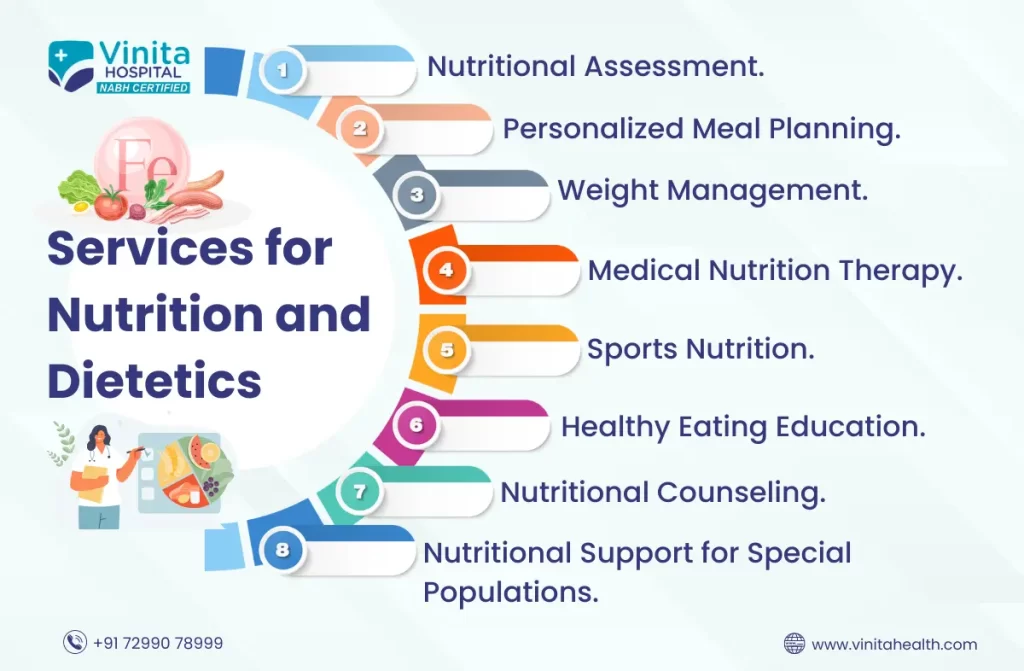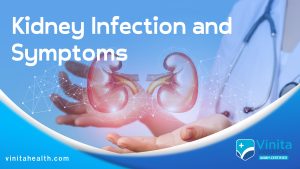In today’s busy era, maintaining a healthy lifestyle has become widely important. One crucial aspect of overall well-being is nutrition and dietetics in Chennai which focuses on the science of food and its effect on the body.
The Role of Nutrition and Dietetics in Chennai
Nutrition and dietetics play a vital role in promoting good health and preventing various diseases. Poor dietary habits, sedentary lifestyles, and the rising prevalence of chronic conditions such as obesity, diabetes, and cardiovascular diseases have become pressing concerns. Nutrition and dietetics in Chennai offer valuable solutions to these issues.

Understanding Macronutrients
Macronutrients are the major components of our diet that provide energy and perform essential functions in the body. They include carbohydrates, proteins, and fats. Carbohydrates are the primary energy source and can be found in grains, fruits, and vegetables.
Proteins are crucial for the growth, repair, and maintenance of body tissues and can be obtained from sources like lean meats, legumes, and dairy products. Fats are essential for hormone production, insulation, and nutrient absorption, and can be found in sources like nuts, seeds, and oils. Understanding the role of each macronutrient while considering nutrition and dietetics in Chennai helps individuals create a balanced diet.
Micronutrients and Phytochemicals
Micronutrients are essential vitamins and minerals required in small quantities for the proper functioning of the body. These include vitamins like A, C, D, and E, and minerals like iron, calcium, and zinc. They are found in various food sources such as fruits, vegetables, whole grains, and dairy products.
Phytochemicals are non-nutritive compounds found in plant-based foods that possess health-promoting properties. Examples include antioxidants, flavonoids, and polyphenols. The best dietitian in Chennai recommends that consuming a diverse range of colorful fruits and vegetables ensures an adequate intake of micronutrients and phytochemicals, which contribute to overall well-being.
Balancing Energy Intake and Expenditure
Maintaining energy balance is crucial for managing body weight. Energy intake refers to the calories consumed through food and beverages, while energy expenditure refers to the calories burned through physical activity and bodily functions. To achieve a healthy weight, you should get tips from the best dietitian in Chennai and ensure it is important to balance these two factors.
Consuming nutrient-dense foods in appropriate portions helps meet energy needs without excessive calorie intake. Regular physical activity, such as aerobic exercises and strength training, enhances energy expenditure and supports weight management while considering the nutrition and dietetics in Chennai.
Importance of Fiber and Hydration
Dietary fiber is one type of carbohydrate that is commonly found in plant-based foods but it cannot be fully digested by the body. It aids in digestion, prevents constipation, and also promotes a feeling of fullness.
Adequate hydration is also crucial for maintaining optimal health. Water is involved in various bodily processes, including digestion, nutrient absorption, and waste elimination. It is recommended to consume an adequate amount of water and fluids throughout the day, especially during physical activity and in hot weather, to stay hydrated while considering the nutrition and dietetics in Chennai.

Individualization and Balanced Meal Planning
Every individual has unique nutritional requirements based on factors such as age, sex, activity level, and overall health status. Individualization is key when it comes to nutrition and dietetics.
Consulting a registered dietitian from the Department of Nutrition and Dietetics in Chennai can help create personalized meal plans that meet specific dietary needs and goals. A balanced meal should include a variety of foods from different food groups, ensuring an adequate intake of macronutrients, micronutrients, and fiber. Portion control is also important to avoid overeating.
Benefits of a Proper Diet
- Nutrient Supply: A balanced diet provides essential vitamins, minerals, and nutrients for optimal bodily functions.
- Weight Management: Proper nutrition aids in weight control, reducing the risk of obesity-related diseases.
- Energy Boost: Nutrient-rich foods enhance energy levels, supporting daily activities and exercise.
- Disease Prevention: A healthy diet lowers the risk of chronic conditions such as heart disease, diabetes, and certain cancers.
- Improved Digestion: High-fiber foods promote digestive health, preventing issues like constipation.
- Enhanced Mental Health: Nutrient-dense meals positively impact cognitive function and mood.
- Stronger Immune System: Proper nutrition supports immune function, reducing susceptibility to infections.
- Better Sleep: A balanced diet contributes to better sleep quality, aiding overall well-being.
Services offered by Dieticians
Dietitians offer personalized nutrition services to promote health and well-being:
- Nutritional Counseling: Tailored advice for individuals’ dietary needs.
- Meal Planning: Customized meal plans aligning with health goals.
- Weight Management: Assistance in attaining and sustaining a wholesome weight.
- Specialized Diets: Creation of diets for conditions like diabetes or food allergies.
- Nutrition Education: Informative sessions to enhance understanding of balanced nutrition.
- Sports Nutrition: Tailored plans to optimize athletic performance.
- Eating Disorder Support: Counseling for individuals with eating disorders.
Eligibility to Become a Dietitian
Becoming a registered dietitian requires a blend of academic preparation, supervised practical experience, and passing a national examination. The eligibility criteria ensure dietitians have the necessary knowledge, skills, and competencies for safe and effective nutrition care services.
- Educational Requirements: The first step is earning a bachelor’s degree from an accredited program in dietetics, nutrition, or a related field. Coursework includes human anatomy, biochemistry, microbiology, food science, and medical nutrition therapy. Many aspiring dietitians pursue a Coordinated Program in Dietetics, combining coursework with supervised practice.
- Dietetic Internship: After completing academic requirements, aspiring dietitians must undergo a supervised practice program, typically lasting 8 to 24 months. This practical experience provides hands-on training in various settings, such as hospitals and community health programs.
- Examination and Certification: Upon completing the internship, candidates must pass the National Registration Examination for dietitians. Continuing education is required to maintain certification.
- Specializations: Dietitians can further their expertise with additional certifications in areas like pediatric nutrition or sports dietetics.
For those seeking Nutrition and Dietetics in Chennai, these rigorous standards ensure high-quality, evidence-based care.
Conclusion
Nutrition and dietetics are fundamental to maintaining a healthy lifestyle. Understanding macronutrients, micronutrients, and phytochemicals helps individuals make informed dietary choices.
Moreover, individualization and consulting the best dietitian in Chennai can aid in creating personalized meal plans that cater to specific needs. By incorporating these key principles into our daily lives, we can optimize our nutrition and improve our overall health and vitality.
Read also Best Plastic Surgeon in Chennai.





